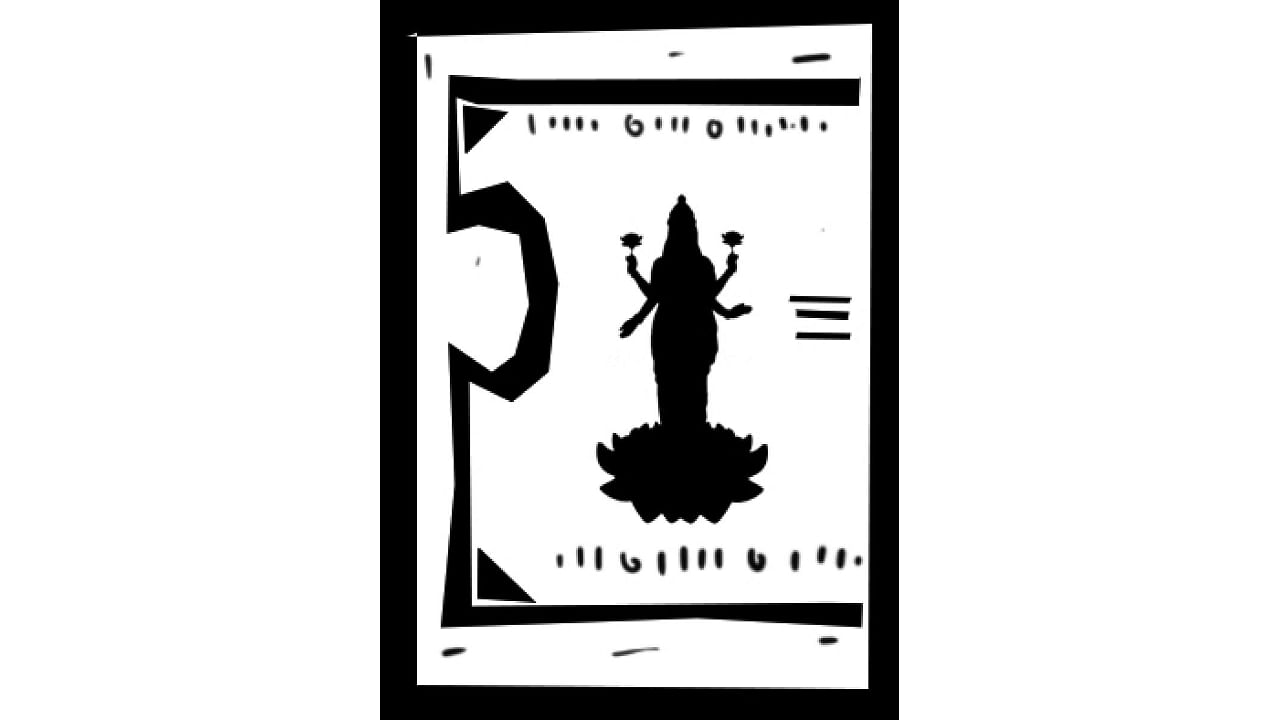
Arvind Kejriwal’s bizarre call for Hindu gods on currency notes to “improve the economy” has, not surprisingly, sparked off a war of words amongst political parties. There are also the usual TV debates on this topic, and a few opinion pieces as well.
‘Stooping to Hindutva politics’, ‘B-team of the BJP’, ‘playing to the majority vote’, ‘anti-secular’, etc., are some of the accusations aptly hurled at the AAP chief.
But what is really surprising is that no one has called out Kejriwal’s proposal for being downright unconstitutional.
Before I go on to explain why the demand is utterly unlawful and blatantly against the secular principles of our Constitution, a bit more on the politics of this issue.
A canny politician, the AAP leader is doing his best to get the Hindu vote, to discomfit the BJP, and to beat it at its own game. Putting the ball in the Centre’s court, Kejriwal has formally written to the Prime Minister requesting that the Centre accept his proposal to include the pictures of Goddess Lakshmi and Lord Ganesha on currency notes. “I am writing this on behalf of 130 crore Indians,” says Kejriwal. He hastens to add that this move alone would not improve the economy but that we need the blessings of gods and goddesses. Indeed, we all need the blessings of the gods. But that’s a private and personal matter. Kejriwal’s plea flies in the face of the Constitution, and of Supreme Court pronouncements on Secularism.
Blessed with a Secular Constitution
Our country is greatly privileged to possess a unique legacy of tolerance, inclusivity and respect for all religions. Small wonder then that the Constitution-makers, inspired by our heritage, incorporated the positive principles of secularism and forbearance in the letter and spirit of the Constitution.
Secularism is one of the basic structures of our Constitution. Which means that the Indian State has no religion, and cannot practise, promote, or favour any particular faith or creed.
The Supreme Court of India, in a litany of judgements, has reiterated the significance of the constitutional mandate of a secular State. In the landmark S R Bommai judgement, a nine-judge Constitution Bench affirmed: Secularism “is a constitutional goal..The State does not extend patronage to any particular religion…It stands aloof… maintains neutrality in matters of religion and provides equal protection to all religions…Any step inconsistent with this constitutional policy is, in plain words, unconstitutional.”
The Constitution Bench went on to say that politics and religion cannot be mixed; that an “appeal on grounds of religion offends secular democracy.”
In January 2017, a seven-judge Constitution Bench said, among other things, that “…the constitutional ethos forbids mixing of religion or religious considerations with the secular functions of the State … (Abhiram Singh v C D Commachen)”.
Thus, it is anathema for political parties to bring religion into politics. There’s a constitutional obligation for public authorities to uphold secular practices and to abstain from wearing their religion on their sleeve.
But do the politicians listen?
Courting religion, violating court diktat
Regrettably, the majority of politicians scorn with impunity the secular route to achieve their goals. There’s a long list of public figures that have fallen foul of the constitutional and judicial command. Come election time, and the frantic rush to appeal to voters on religious, casteist and majoritarian lines is there for all to see.
The People’s Representatives are visibly and unabashedly breaking the spirit of the law. In dashing to temples in election time, in appealing to the electorate on pious grounds, the message is loud and clear: “See how devout I am…vote for me…”
The Founding Fathers of the Constitution, for whom secularism was the pivot on which it was drafted, would be horrified at the current scenario where almost every politician, or aspirant to politics, plays the religion card, demonstrably uncaring of any legal or moral obligations.
Right to religion
There’s a perception that being secular necessitates a rejection of traditions, religious principles. Not so. In the Indian perspective, there’s due reverence for all faiths and beliefs. Articles 25 to 28 of the Constitution provide for freedom of religion -- citizens can freely practise and profess their faith. However, the Indian State is constitutionally bound to be secular, to be religiously neutral.
Sarvepalli Radhakrishnan put it succinctly: “Secularism does not mean irreligion. It means we respect all faiths and religions. Our State does not identify itself with any particular religion.”
Therefore, Kejriwal’s solicitation, for gods on currency notes, is a non-starter. The Indian State, being secular, cannot “identify itself” with or approve such a religion-centric request. The courts would certainly have to strike down any such move.
It is pertinent to note that Section 25 of the Reserve Bank of India Act, 1934, states that the design, form and material of bank notes has to be approved by the central government. In this particular matter of the Kejriwal petition, the central government will have no option but to reject the AAP leader’s utterly non-secular imploration. It’s Hobson’s choice, actually!
Ironically, in the West, secularism is not as well-defined as in India. In the US, religion plays a big role in influencing judicial decisions; for example, the anti-abortion rulings.
In the UK, the official religion is Christianity. The Prime Minister has to advise the King on the appointments to the Church of England. Intriguingly, it’ll be Britain’s new Hindu Prime Minister, Rishi Sunak, who will so advise the Christian King! As for currency, King Charles coins are being minted. Divine right?
To come back to India, images of gods on coins is impermissible by law. However, Kejriwal’s latest demand -- for implementation of the Uniform Civil Code across India -- is perfectly legitimate and definitely constitutional! But, that’s another story.
(The author is a Bengaluru-based lawyer and writer)